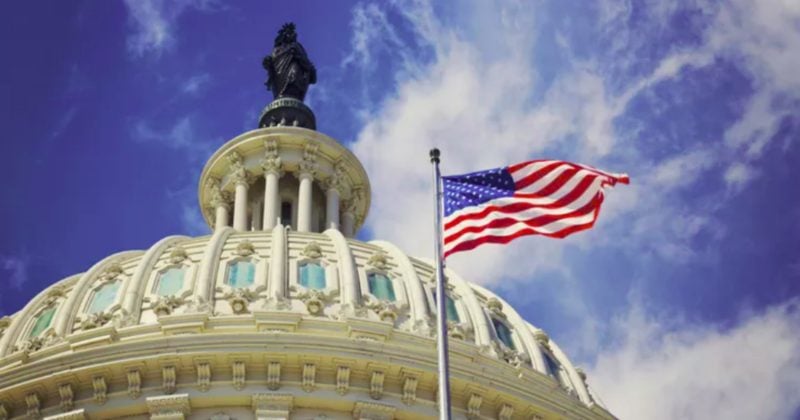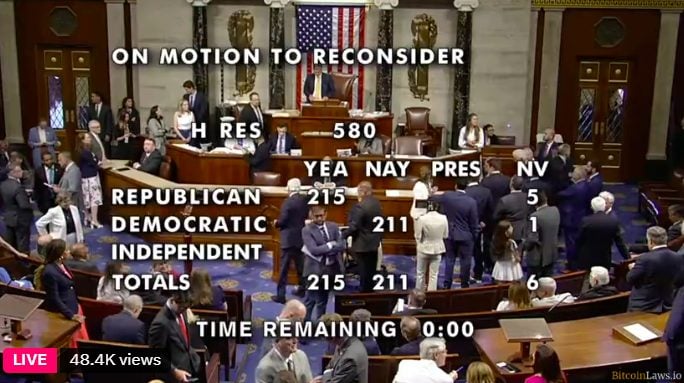
House clears first hurdle to initiate debate on trio of crypto bills
President Trump on Tuesday intervened to secure support from GOP holdouts who initially blocked the bills' advancement.
The US House of Representatives on Wednesday cleared an initial procedural hurdle to revive a stalled package of crypto legislation, approving a motion to reconsider by a narrow 215–211 vote.

The move comes one day after the surprise defeat of these bills and following direct intervention by President Donald Trump to shore up Republican support.
The clearance reopened the legislative path for three major crypto bills — the GENIUS Act, which addresses stablecoin regulation; the Clarity Act, focused on crypto market structure and oversight; and the Anti-CBDC Surveillance Act, which would prohibit the Fed from issuing a central bank digital currency without explicit congressional approval.
The renewed effort follows a late-night Oval Office meeting between Trump and roughly a dozen House Republicans, where the president pressed lawmakers to support the crypto package.
Trump has voiced support for the GENIUS Act, which has already passed the Senate, and is seen as a potential legacy win for his administration’s approach to crypto and fintech.
While Wednesday’s motion to reconsider succeeded, the House still needed to pass a subsequent rules vote to formally advance the bills to debate and final votes.
The second vote was still ongoing at the time of reporting.
[July 16, 3PM ET]: This article has been updated to correct earlier language that inaccurately stated the House had “advanced” the GENIUS, Clarity, and Anti-CBDC bills. In fact, the House passed a motion to reconsider the package, reopening the path for debate but not advancing the legislation.
